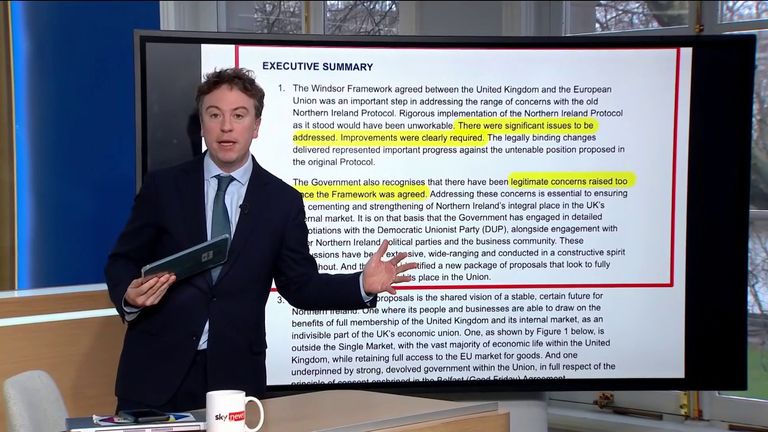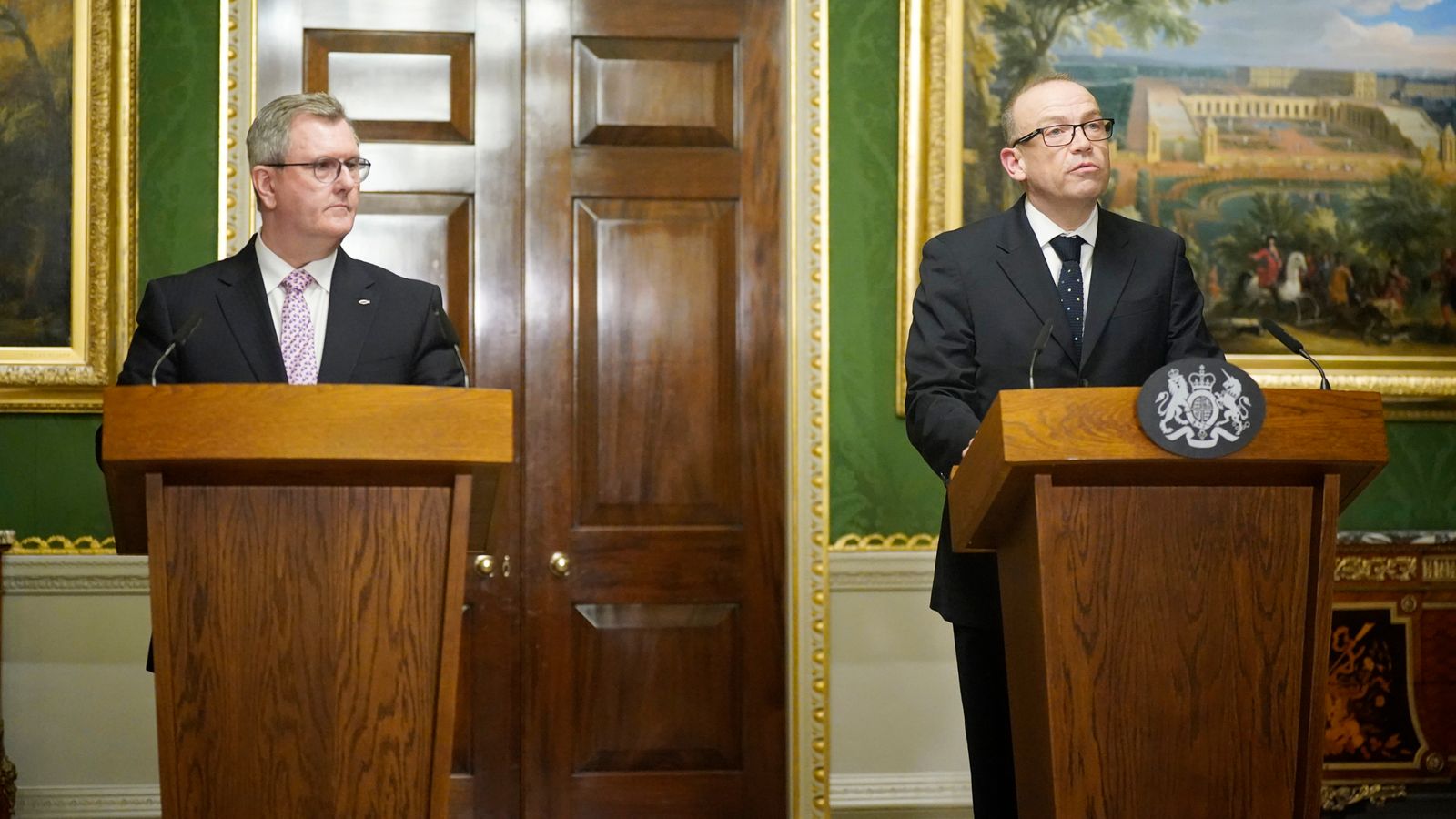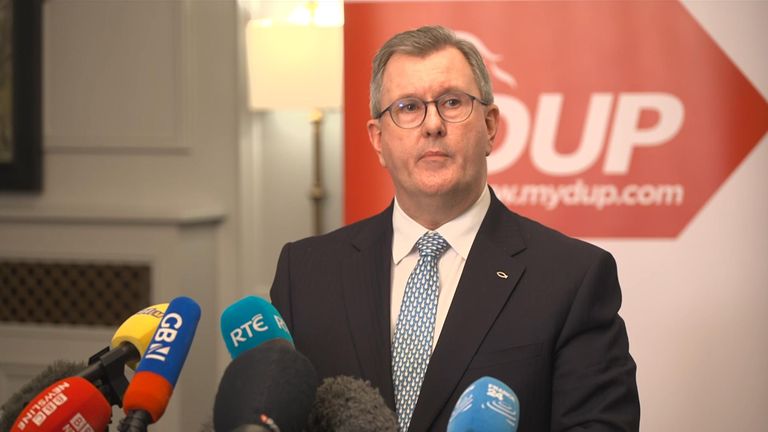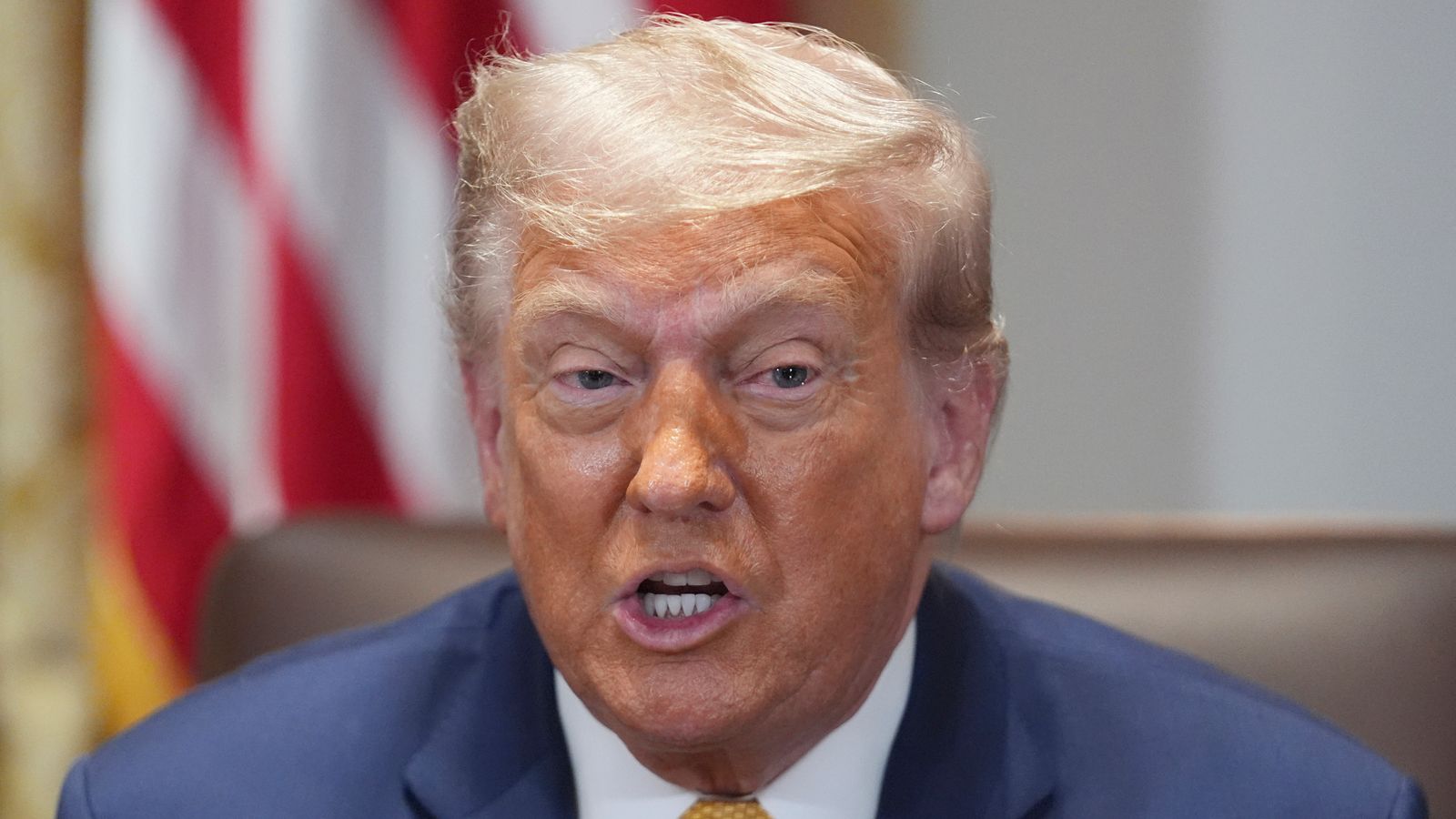
MPs have approved the government’s plan to revive the power-sharing executive in Northern Ireland, despite some unhappiness from unionists in Westminster.
The Commons passed the necessary legislation on Thursday afternoon to approve the fresh post-Brexit trading arrangements, and it will now head to the Lords for its final sign off.
The government’s deal to remove routine checks on goods moving from Great Britain to Northern Ireland has won widespread applause and is set to herald the return of Stormont following a two-year hiatus.
Politics latest: Speaker questioned after ‘PM Starmer’ mistake
As a result, Democratic Unionist Party (DUP) leader Sir Jeffrey Donaldson has written to the Speaker of the Stormont Assembly to confirm the conditions now exist for the return of the power-sharing executive.
He has also indicated he expects the Assembly to sit on Saturday.
The deal – reached after intense talks with the DUP which collapsed the Northern Ireland Assembly in protest at the prime minister’s Windsor Framework – will also mean the Withdrawal Act is amended so EU law will no longer apply automatically in Northern Ireland.
Thursday’s sign off came after the government fast-tracked two pieces of domestic legislation in parliament giving effect to the commitments made in its Safeguarding The Union command paper published on Wednesday.
Sir Jeffrey told the Commons that Northern Ireland had been “placed in a situation where we were separated from the rest of the United Kingdom in key elements of the benefits that ought to have flown from Brexit”, and he saw it as his mission to “repair the damage”.
But with the new agreement, he said his party had secured “real changes” to post-Brexit trade across the Irish Sea.
However, while Sir Jeffrey and other parties welcomed the deal, some other unionist politicians raised concerns.
Former DUP leader Lord Dodds told peers they needed to “realise that there are still many unionists who are deeply worried and concerned that the Irish Sea border… still exists, since many goods coming from Great Britain, British goods coming to Northern Ireland, especially in manufacturing, still need to go through full EU compliance checks, procedures”.
He added there were also worries about “the continued sovereignty, jurisdiction and application of EU laws over large swathes of our economy in 300 areas, to which the Stormont brake doesn’t apply and we cannot make or amend laws within those areas”.
“These are fundamentally important constitutional and economic issues and many unionists still are concerned about these issues,” said Lord Dodds.
Over in the Commons, Sammy Wilson, the DUP MP for East Antrim, said it would still leave EU border posts in Northern Ireland – something that has been disputed.
Speaking in the Commons yesterday, Mr Wilson branded the government “spineless, weak-kneed and ‘Brexit-betraying'”.
And he again raised concerns in today’s debate, claiming some good would still face unnecessary checks.
But Northern Ireland minister – and former leading Brexiteer – Steve Baker rejected his assessment, saying: “We have had eight years of drama.
“For us to arrive at this moment where we have reduced EU law to this extent, and where we have put in place a red lane to protect the legitimate interests of Ireland and the EU, that is something we should all be very proud of after everything we’ve faced and all of the risks that could have put us in a far, far worse position.”
Sir Jeffrey added: “It is work in progress. I do not stand here this afternoon and pretend that we have completed the task.
“I recognise that there are ongoing concerns about how these new arrangements will work in practice. And it will be our task to hold the government to account on its commitments.”
Veteran Tory Brexiteer Sir Bill Cash also raised concerns about “issuing orders from Westminster to Northern Ireland if the people don’t want it”.
And on the other side of the debate, the leader of the SDLP, Colum Eastwood, said his party didn’t support the plan as it was “undermining north-south cooperation” on the island of Ireland, and was “far too much focused on east-west”.
He told MPs: “Moving on from this point, we need to ensure that any future negotiation is done with all parties and both governments so everybody can feel comfortable with the result.”
Sir Jeffrey said “detractors” of the deal had been “very vocal”, but added: “We have restored Northern Ireland’s place within the United Kingdom’s internal market.”
Despite the concerns raised, the plan was passed in the Commons without MPs calling for a vote – known as going through “on the nod”.












